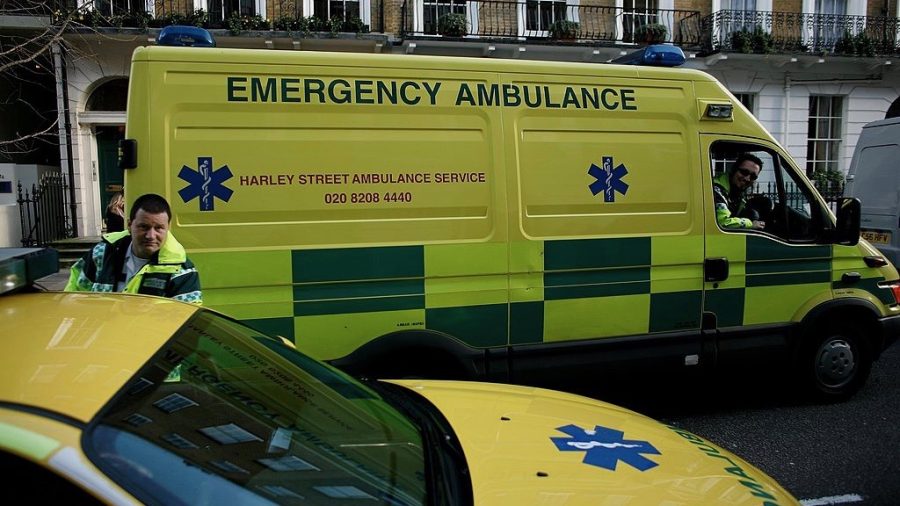A young paramedic gave herself a stroke by stretching her neck a bit too far.
Natalie Kunicki, a 23-year-old paramedic working for the London Ambulance Service, ended up with a stroke after she stretched and cracked her neck while in bed one night watching movies.
After stretching, Kunicki felt strange, but she thought the symptoms were just a result of her being drunk, as she had just been out drinking.
“I got up and tried to walk to the bathroom and I was swaying everywhere. I looked down and realized I wasn’t moving my left leg at all. Then I fell to the floor,” she said, via Daily Mail.
Kunicki was too embarrassed to call emergency services, since she feared her colleagues would arrive and see her drunk.
Then she started to think that maybe somebody had tried to do something sinister to her.
“I thought I had been drugged. The date rape drug can cause paralysis.”
Kunicki tried to go back to sleep but couldn’t as she realized something was seriously wrong. She finally decided to call emergency services, and just in time as she was almost too disoriented to do it.
When emergency services arrived to take her to the hospital, Kunicki found that her physical coordination was lacking, and her blood pressure and heart rate were extremely high.
“I think they did look at me at first like they thought I was just a classic drunk 23-year-old. But I told them I was a paramedic and I knew something was wrong,” Kunicki said, via Daily Mail.
The paramedics took Kunicki to the University College London Hospital where they confirmed she had experienced a stroke and needed emergency surgery. She was approved for the National Hospital for Neurology and Neurosurgery, where she underwent three hours of surgery.
According to the CDC, the majority of stroke victims in the United States are 65 years of age and older. But 10 percent of stroke victims are under 45-years-old, according to Stanford Health Care. In older people, atherosclerosis, or the build up of fats, is most often the cause of a stroke, although atherosclerosis can also occur in young people due to diabetes, high blood pressure, high cholesterol, or cigarette smoking.
Other causes in young people include heart or blood conditions, drugs, infections, and inflammatory conditions. Genetics can also contribute, but in 25 to 35 percent of cases, medical professionals cannot pinpoint the cause of a stroke in young people, according to Stanford Health Care.
It turns out that Kunicki ruptured an artery in her neck when she stretched and heard a crack, while watching movies on her bed. The ruptured artery caused a blood clot in her brain.
“I wasn’t even trying to crack my neck. I just moved and it happened. I stretched my neck and I could just hear this “crack, crack, crack.” Kunicki said, via Daily Mail. “My friend asked ‘was that your neck?’ but all my joints crack quite a bit so I didn’t think anything of it. I just laughed.”
Kunicki’s main problem was that she didn’t think it likely that anything was wrong.
“I’m a paramedic and I didn’t ring 999 for ten minutes because I thought it was too unlikely it would be a stroke when I should have known much better.”
Surgeons were able to repair the artery but could not remove the blood clot. They believe it will dissolve on its own.
“The doctors told me later that just that stretching of my neck had caused my vertebral artery to rupture. It was just spontaneous and there’s a one in a million chance of it happening,” she said, via Daily Mail.
Kunicki has lost some mobility with the stroke, but hopes that the symptoms are temporary and that she will soon recover and get back to work.
“I expected to wake up from this miracle surgery and everything would be fixed but my mobility was worse and they couldn’t clear the clot,” Kunicki said via the Daily Mail. “At the start, I couldn’t move my thumb and forefinger. I could kind of move my wrist up and down. I couldn’t lift my arm. I could bend my left leg but I couldn’t wiggle my toes.”
She hopes to be in good enough shape for light duty at work in 6 to 12 months time.
“I’ve recovered movement in my left side. I can walk but not for more than five minutes,” she said. “I’m really clumsy. I can’t do up buttons, I find it too difficult. I can feel hot and cold now but I still feel a bit numb.”
Kunicki is from Canberra, Australia, but moved to London to work with the London Ambulance Service in December 2017.


